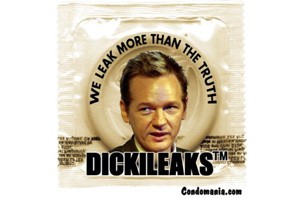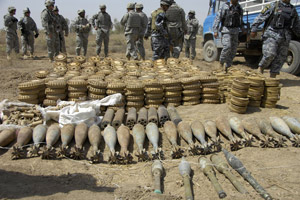Guest blogger Mark Follman writes frequently about current affairs and culture at markfollman.com.
A report from the Washington Post on Wednesday describes an effort by the CIA to assess the impact of WikiLeaks on US national security. The effort is known as the WikiLeaks Task Force. Apparently it’s also commonly referred to as ‘WTF’ around the halls in Langley. While that acronym may be cracking some sardonic grins, the Post story also reveals a CIA perspective that is no laughing matter.
To some agency veterans, WikiLeaks has vindicated the CIA’s long-standing aversion to sharing secrets with other government agencies, a posture that came under sharp criticism after it was identified as a factor that contributed to the nation’s failure to prevent the attacks of Sept. 11, 2001. Even while moving to share more information over the past decade, the agency ‘has not capitulated to this business of making everything available to outsiders,’ said a former high-ranking CIA official who recently retired. ‘They don’t even make everything available to insiders. And by and large the system has worked.’
Without a doubt the sharing of sensitive information among US agencies remains a complex and unwieldy issue—perhaps as complex and unwieldy as the US national security apparatus itself since it ballooned under George W. Bush in the wake of 9/11. But while a strong majority of Americans believe that WikiLeaks has harmed the national interest, it could be dangerously foolish to buy into a resurgent lockdown mentality.
In his indispensable 2006 book ‘The Looming Tower,’ journalist Lawrence Wright investigated the devastating effect of turf battles among the CIA, FBI and NSA prior to the 9/11 attacks. Wright’s book, as I detailed in an essay for Salon, made a persuasive case that the 9/11 plot may well have been foiled if not for fatal duplicity on the part of the CIA, which jealously guarded its intelligence gathering from the criminal-investigation focused FBI. A crucial opportunity apparently came and went in late 2000:
In Yemen, [FBI agent] Soufan was on the trail of an al-Qaida figure closely connected with Nawaf al-Hamzi and Khaled al-Mihdhar, two Saudi-born al-Qaida operatives who would later help seize planes on 9/11. The CIA had surveillance photos of all three men together from an al-Qaida summit in Malaysia the previous January, but when Soufan came knocking for information, the CIA slammed the door shut. It was part of what Wright calls ‘a bizarre trend in the US government to hide information from the people who most needed it.’
As I noted in my piece about WikiLeaks and cyber warfare earlier this month, some US officials have been warning anew about the dangers of inter-agency turf battles. Former national intelligence director Dennis C. Blair recently told Congress, ‘This infuriating business about who’s in charge and who gets to call the shots is just making us muscle-bound.’
What happens when the next 9/11 is in the works? The real imperative, it seems, is for the US government to better protect any necessary secrets (the definition of which is another key subject—see Thomas Blanton on ‘the massive overclassification’ of US national security information) while improving upon the sharing of vital information among agencies. If it fails in that mission, the fallout could ultimately be far greater than anything perpetrated by the likes of Julian Assange and company.

















